A Mind With a View

Interview by Richard Marshall

' ... science has to explain human knowledge – what we know, and how we manage to know it under the conditions in which we find ourselves. This was Quine’s great lesson to the positivists – you can’t set up your epistemic rules a priori and then defend them by showing that if theory were to be constructed in accordance with these rules, then the theory would be justified.'
'... on top of my general disdain for generic comparisons, when we are talking about things like “epistemic capacities or strategies,” there is no evidence that there are even differences in the averages between males and females. But my fallback position is that it wouldn’t be interesting if there were.'
'I think there’s no reason to believe that there’s anything about the doctrines or methodology of contemporary analytic philosophy that explains why the field is dominated by men. I think the demographic pattern is more likely to be explained by a convergence of a number of well-known biasing factors within the discipline of philosophy.'
'I am against “deplatforming,” as well as other modes of disciplining speech. I’m alarmed by the enthusiasm some of my leftist allies show for actions such as petitioning journal editors to resign, or to retract articles that seem to them to reach racist, transphobic, or sexist conclusions. I also object to campaigns to get professors fired for being right-wing. And I’m baffled by feminists who call for the censorship or regulation of pornography – they want to give the state the power to determine what we can see and read? The Trump administration?'
'Computationalism in the theory of mind is the view that “thinking is reckoning” (as Thomas Hobbes put it) – that is, that the main function of the mind is information-processing, and that information-processing is mechanical. (Alan Turing, of course, is the person who demonstrated that intelligent processes can be mechanized.) Representationalism (in the context of the metaphysics of mind – the term gets used in other contexts to signify slightly different views) gets a step more specific, and holds that the mechanical processes consist in the manipulation of symbols.'
'I dislike the way Dawkins, Hitchens, and Harris talk about atheism because they suggest that you have to be an idiot to be religious, and that’s ridiculous. Dennett is more nuanced, but I think he also thinks of religion as essentially irrational. Some of the smartest people I know are theists.'

Louise Antony is focused on the question of how mentality can be realized in a physical world; she has written extensively about mental causation, the nature of mental representation, and the relation between language and mind. She is also interested in naturalistic epistemology, and is currently trying to develop a psychologically realistic account of empirical justification as well as feminist philosophy, particularly feminist epistemology. Here she discusses the links between Quine, naturalism and feminism, gender differences in epistemic strategies, masculinist bias, why there are so few women in philosophy, gender politics and how it should be conducted, the Representational Theory of Mind, Jerry Fodor, Dennet, the Churchlands, perception and illusions, why anomolous monism doesn't work, whether huge disagreements in philosophy of mind show that something has gone wrong, naturalism's relationship with religion, William Craig Lane, Alex Rosenberg, and whether it matters whether someone believes in God.
3:16: What made you become a philosopher?
Louise Antony: I had no idea what philosophy was when I started college, but signed up for a course in order to satisfy a distribution requirement. (My instructor was Peter van Inwagen – it was his first course as a faculty member.) I took to it immediately. Not only did I find the questions inherently interesting (do/how can we know anything? does God exist?), but I gloried in being able to ask critical questions and getting back pertinent replies. The whole of my (then short) conscious life, I had found that it was generally not appreciated when I asked questions or argued with the answers. Imagine – a place where this sort of behavior was encouraged!
3:16: Philosophy of mind, epistemology and feminist philosophy are three things you’ve written extensively about. It seems your approach to all three are intertwined somewhat – you argue that a feminist epistemology is best approach naturalistically and follow Quine here, and naturalism is also your approach to philosophy of mind too. So how do you understand feminist epistemology – and why is a naturalist Quinean approach the best way to bring about feminist epistemological ends?
LA: The main thing I think I absorbed from Quine was his confirmational holism – the idea that every fact is in principle evidentially relevant to every other. Many people construe Quine as saying that science is the arbiter of all truth. He may have thought that, but the lesson I draw from his work is that Naturalism is essentially a continuity thesis – it says everything we believe to be true has to answer to every other thing we believe is true. So common sense has to answer to science, but science also has to answer to common sense. What I mean by that is that science has to explain why common sense is right when it is right, and why it sometimes seems right even though it is wrong (think “the Earth is flat”). A good example of highly successful everyday theorizing is what’s called “folk psychology” – the inferences and predictions we make about human behavior based on people’s (presumed) beliefs and desires. It’s incumbent upon the science of psychology to explain why we do so well in this domain. (Neurobiology has the task of explaining how the generalizations and mechanisms identified in psychology are embodied in brain tissue. This is all working out very nicely in the domain of vision science. In the domain of general cognition, not so much.)
More generally, science has to explain human knowledge – what we know, and how we manage to know it under the conditions in which we find ourselves. This was Quine’s great lesson to the positivists – you can’t set up your epistemic rules a priori and then defend them by showing that if theory were to be constructed in accordance with these rules, then the theory would be justified. What needs to be done is to explain how successful theories arose despite our not constructing them in anything like the prescribed ways. That’s exactly the project that the cognitive sciences have taken up with respect to such mundane accomplishments as language acquisition, and it’s one of the great ironies of philosophy that Quine never saw cognitive science in that light. But linguistics and cognitive psychology and vision science were all exploding around the time I was in graduate school and these approaches seemed to me to be the perfectly realization of Quine’s announced epistemological goals.
I believe in the naturalistic approach to epistemology because I think it is correct, but I also think that such an approach is also extremely useful for feminist or any critical epistemology. Because naturalism asks about the actual processes underlying knowledge, and the actual determinants of our beliefs, it vindicates feminists’ observations that social position and power relations are factors in determining what gets counted as knowledge and in who gets to decide what counts. A naturalistic perspective also brings to light the ways in which our actual practices of knowledge construction fall short in ways that a traditional epistemologist can recognize as epistemic flaws. Naturalistic studies promise to reveal and explain such things as the workings of pernicious prejudice in our daily life.
One thing I’ve focused on in my work is the surprising fact that certain forms of bias are absolutely vital for the development of human knowledge. This is true at both individual and at the social levels. If we did not have innate mental structures that limit the kinds of grammars we can acquire, we would not be able to acquire language in the fast and effortless that we do (as children!). And if scientists did not share broad, pre-theoretical judgments about similarity, plausibility, and likelihood, they would not ever be able to converge onto workable theories. The problem that (good) bias addresses is what Quine called the underdetermination problem: way too many hypotheses consistent with the relatively paltry evidence we have available to us. Innate (and some acquired) biases pare these down to a manageable number. But this fact is in tension with our intuitive feeling that bias is a bad thing. In my work, I’ve argued that this tension can only be resolved case-by-case. We don’t want biology professors to be unbiased about creationism, but we do want them to evaluate male and female students by the same standards. Again, a naturalistic perspective helps here – we can often determine empirically when a bias is constructive and when it is harmful.

3:16: Do you think there are gender differences in epistemic capacities or strategies, and what difference would it make if there were? What can a masculinist bias in epistemology result in and how does considering embodiment in particular help us understand the distortions that such bias brings about?
LA: Let’s not connect questions about masculinist bias with questions about gender differences in epistemic strategies. Let me say something about the latter first. There are lots of ways in which human beings differ from each other. And there are lots of ways that we can group human beings: they are men and women, Africans and Europeans, straight people and gay people, Jews and goyim, etc. There are also differences in various kinds of abilities. There are, for example, differences in children’s abilities to learn to read by means of the “whole language” curriculum – some kids do well with that curriculum, and some do very poorly. (Almost everyone learns how to read with a phonics curriculum – just saying). As it happens, there is a “gender difference” here – there are more boys who have trouble learning to read with this curriculum than girls. But so what? If you’re an educator, you want to identify the kids who need extra help or a different curriculum, whether they are boys or girls. It would be irresponsible to use gender as a marker for this – you’ll end up offering help to some boys who don’t need it, and neglected some girls who do. The sizes of these groups is relative to the degree of overlap. And for almost every measurable human trait – except amount of circulating testosterone – males and females strongly overlap. So it is generally quite misleading characterize the facts by saying, “Boys have more trouble learning to read than girls,” or “Men are taller than girls.” Such “generic comparisons” encourage fallacious inferences to categorical claims like “Men are good at space and women are good at language.” (Real examples!) But on top of my general disdain for generic comparisons, when we are talking about things like “epistemic capacities or strategies,” there is no evidence that there are even differences in the averages between males and females. But my fallback position is that it wouldn’t be interesting if there were.
About masculinist bias in epistemology: I’m a skeptic about this, at least about the specific allegations that have been made by some feminist epistemologists, namely that the individualism and abstractness of Western (or “Western”) philosophy is evidence of masculinist bias. First of all, men have dominated philosophy and religious thought throughout the world and throughout history, whether we’re talking dualism, monism, Taoist, or Hindu. So every epistemological tradition has been shaped, if any has, by the interests and self-conceptions of men. Secondly, there’s variation within the “Western” epistemological tradition, and that variation cannot be explained by gender differences. Wittgenstein seems perfectly OK by the lights of some feminists who criticize the Anglo-American (which is really German-Austrian-(and-only-after-the-Nazis-) Anglo-American, having been more or less started by the Vienna Circle). Marx and Foucault are revered. So if those men can transcend their masculinity and produce theories (or anti-theories, in the case of Wittgenstein), I don’t see why Descartes couldn’t as well. Thirdly – and we know this largely because of the groundbreaking work of my colleague, Eileen O’Neill – women philosophers had a large influence on the development of Englightenment philosophy: Elisabeth of Bohemia (who set out, in her correspondence with Descartes in 1643, the problem of mind-body interaction), Emilie de Châtelet, Mary Astell, Anne Conway, And Mary Wollstonecraft were just a few of the women active in philosophical debates during the 17thand 18thcenturies. The masculinist bias here lies in the degree to which these women’s contributions have long been ignored or forgotten.
3:16: Does this account for the fact that there are so few women in philosophy? Is philosophy mysoginist – and have things changed for the better or worse since your seminal book on these issues back in the 90’s? And why is philosophy worse than other humanities subjects like English or history (though not economics!) in representing women in the academy do you think?
LA: As I argued in my paper, “Different Voices or Perfect Storm: Explaining the Dearth of Women in Philosophy,” I think there’s no reason to believe that there’s anything about the doctrines or methodology of contemporary analytic philosophy that explains why the field is dominated by men. I think the demographic pattern is more likely to be explained by a convergence of a number of well-known biasing factors within the discipline of philosophy. There is, for example, a stark clash between the behavioral norms of philosophy and the behavioral norms for women. Women are, in general, sanctioned for being argumentative and for overt expressing disagreement. It’s hard to do philosophy abiding by those norms. Another example: Sarah-Jane Leslie and colleagues found that there was a strong relation between the percentage of women in a given academic field, and the degree to which practitioners of that field believed that brilliance, rather than effort, explained success in that field. Philosophy was at the high end on both counts. (“Genius” is stereotypically male, and women are stereotypically “hardworkers.”) See Leslie et al., “Expectations of brilliance underlie gender distributions across academic disciplines” Science, May 6, 2015
As to whether things are better for women in philosophy: we’re making some progress, I think. The American Philosophical Association, under the leadership of super-heroine Amy Ferrer, has started and supported many initiatives to foster diversity of all sorts within the profession, and set up ensuring diversity of topics as well as demographic diversity in APA programs. And awareness of the gender problem has grown, with many departments (e.g. Syracuse University) implementing procedures in hiring and promotion designed to eliminate implicit bias, many journals implementing triple-anonymous review, and many prominent men speaking out on behalf of gender equality. I have been involved, for the last ten years, in a program to mentor pre-tenure women faculty in philosophy, modeled on a successful program designed by women in Economics.
But given the diffuseness of the causes (on my model), I think we have a long way to go. One big problem is that there still is not adequate provision at most colleges and universities for family care work – childcare, care for the sick or elderly – that is done, still, mostly by women. Another problem is (which interacts with and is partly explained by) the bad and worsening work conditions for adjunct faculty, who are disproportionately women. Women’s progress in any field is going to be limited by these broader social factors.
3:16: The gender/sex distinction has been questioned recently in the rather toxic debate in philosophy around trans gender issues. Where do you stand on this distinction and does it have any bearing at all on the feminist epistemological issues you discuss? Some of the voices in the debate are very authoritarian in their approach – to the point of deplatforming and trying to remove opponents from being even able to debate the issue. Isn’t feminism anti-authoritarian and so isn’t this kind of thing anti-feminist?
LA: As a feminist, my position is that the existence of gender – that is, the existence of a social structure – that assigns specific social significance to sex – or that, in Marilyn Frye’s words (quoted also above) “makes sex relevant to everything” is the problem, so I enthusiastically supportive any and all personal and social action that in any way helps to take apart “gender regimes.” As a person, I abhor and try to fight against discrimination and violence directed at individuals because of their sexual orientation or gender identity. Philosophically, I argue that gender, woman, and man are social kinds, but that the terms that pick them out – “gender”, “woman”, and “man” are indefinability, like other terms for social kinds, like “parent.” I am thus a deflationist: “woman” expresses the property of being a woman.
I am against “deplatforming,” as well as other modes of disciplining speech. I’m alarmed by the enthusiasm some of my leftist allies show for actions such as petitioning journal editors to resign, or to retract articles that seem to them to reach racist, transphobic, or sexist conclusions. I also object to campaigns to get professors fired for being right-wing. And I’m baffled by feminists who call for the censorship or regulation of pornography – they want to give the state the power to determine what we can see and read? The Trump administration? My reasons for supporting the First Amendment are principled, but I think the pragmatic case for doing so is decisive. It may feel like a bit of power to get the editorial board of a journal (I’m thinking of Hypatia) to resign, but it’s the Right that will win this game. This is very evident with what’s happening to Middle East activists. There has been an official State Department acceptance of a “definition” of antisemitism according to which it is anti-semitic to express opposition to Zionism. People have lost jobs for refusing to pledge not to advocate for Boycotts, Divestment, and Sanctions (BDS) against Israel. (I support BDS; many of my friends oppose it, but agree that I ought to have a right to hold and express my opinion.) The excellent and courageous scholar Norman Finkelstein was denied tenure at DePaul University after a well-funded outside lobbying effort by pro-Zionist groups and individuals. On another front, we have many states in which healthcare providers are required to recite pseudo-scientific propaganda to women seeking abortions, or are legally barred from giving them information about abortion providers. The restriction of speech always comes back to bite progressives.
All that said, I don’t think that any particular person has a right to be invited to speak at a conference, or to be included in an anthology. So there’s nothing wrong with deciding not to issue particular invitations. What I oppose is campaigns to keep particular individuals from speaking or getting published.
I do think that everyone has a right to submit their work for proper review in any journal that advertises that it accepts submissions, even if they are a known sexual harasser. That’s because I think he has nothing of value to offer the university community. I would not invite Milo Yiannopolous to speak on campus, and I would vote against inviting him. I’d certainly protest if he somehow got an invitation, and work with others to set up literature tables and (if there’s to be a Q & A) to plan strategic questions. But I wouldn’t try to shut it down.
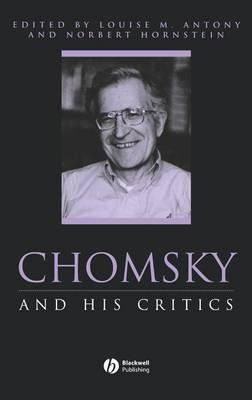
3:16: Turning now to the philosophy of mind, you defend a version of non-reductive physicalism, the computationalist account known as the Representational Theory of Mind don’t you. This is a position held by people like Jerry Fodor and Putnam isn’t it? Could you begin by sketching for us what this approach is and the importance of the terms ‘non-reductive’ ‘physicalist’, ‘computationalist’ and ‘representation’?
LA: Whew. It’s hard to do this quickly, but I’ll try. First, a quick correction: Putnam was, early on, a proponent of functionalism, and for some version of the idea that the brain could be fruitfully thought of as a computer, with the mind constituting the computer’s ‘software.’ But he never endorsed the Language of Thought view developed by Fodor, and he later repudiated computationalist psychology altogether (for reasons I thought were bad). But back to computationalism. So first, metaphysics: Putnam and Fodor both independently noticed that the relation among the natural sciences could not be the simple one articulated (earlier) by Putnam and Oppenheim in “The Unity of the Sciences as a Working Hypothesis” . On this view, there is a hierarchy of sciences corresponding to the mereological hierarchy in nature: physics corresponds to elementary particles, chemistry to molecules, biology to organisms, and (surprise!) sociology to groups of organisms. The surprise is: where’s psychology on this picture? Well, psychology takes as its domain things that are at the same mereological level as biology, viz., organisms. Both Putnam and Fodor realized that psychology differs from biology not in covering beings that differ in respect of mereology, but rather that differ in respect of abstractness. The mind is the brain, considered more abstractly. (This is, I think, essentially the sort of relation Gilbert Ryle had in mind when he spoke of the mind and the body’s being in “different logical categories.”)
Psychology, then, maps the functional structure of the brain and its processes. Psychological properties, according to Putnam and Fodor, are “higher-order” in the following sense: to have a psychological property P is to have other property (say, a biological property) that realizes a particular functional state. Since the psychological properties are higher-order, there is the possibility of multiple realization– although human psychologies are realized in brains, they could in principle be realized by things other than brains – maybe alien organs based in silicon rather than carbon, maybe even electronics. Turns out, lots of the non-basic sciences (probably all of them) make crucial use of functional properties that are multiply realized (not just multiply realizable) : molecule in chemistry, cell in biology, money in economics, mountain in geology, niche in ecology, etc.
Computationalism in the theory of mind is the view that “thinking is reckoning” (as Thomas Hobbes put it) – that is, that the main function of the mind is information-processing, and that information-processing is mechanical. (Alan Turing, of course, is the person who demonstrated that intelligent processes can be mechanized.) Representationalism (in the context of the metaphysics of mind – the term gets used in other contexts to signify slightly different views) gets a step more specific, and holds that the mechanical processes consist in the manipulation of symbols. On Fodor’s view, these symbols are syntactically structured, and taken as a whole, constitute a literal “language of thought.” The symbols are also presumed to have representational or intentional content (semantics), but, on Fodor’s view, the cognitive machinery is sensitive only to syntax and lexical difference. Thus, theories of cognitive processes should adhere to “methodological solipsism” – they should be thoroughly internalist, making no reference to the (presumed) semantic values of the symbols. The question of what determines the semantic values of mental symbols must be answered by a separate, non-computationalist theory, acc. to Fodor. Presumably the correct story about this will crucially involve our perceptual connections to the world. Computationalists divide over the question of the kind of computational processes the mind utilizes. Some, like Fodor, think mental computation is classical, i.e., a matter of rules that are defined over the syntactic features of symbols. Others, like Terry Horgan, are connectionists, and think that mental computation involves networks of nodes connected in varying ways to each other, and responsive to varying levels of activation. It’s unsettled among connectionists whether connectionist networks can recover, or be sensitive to, the syntactic structure of inputs, but connectionists all agree that computation by spreading activation is not going to be isomorphic to the steps of a classical computation.
Not all representationalists are computationalists. Many philosophers agree that there are mental representations. But in my view, computationalist, LOT representationalism provides the best explanation of the phenomena that a theory of mentality ought to account for. For one thing, positing language-like mental representations offers an elegant explanation of Frege problems, and of intensionality in general. (Indeed, it’s been suggested, by Fred Adams and by me, that mental representations can do all the work that Frege wanted done by senses, but without the shadowy ontology and shaky epistemology of Frege’s picture.) Propositional attitude states, on this view, involve two elements: first, a functional attitude (belief, desire, hope, etc.), which we can think of as a set of boxes, and second, a sentence (type) in the LOT. Since sentences are individuated more finely than the states of affairs they describe – “Jocasta would be good to marry” is a different sentence from “My mother would be good to marry” – we can explain why Oedipus can affirm the first thing while denying the second. The LOT picture also explains how practical reason could work.
Are functionalists physicalists? Depends on what you mean by “physicalist.” To be a functionalist is to believe in the autonomy of the higher-order sciences, and thus to deny that there can be a strict type-type reduction of the properties of the higher-order sciences to the properties of physics. But functionalists do generally believe that the higher-order properties are realized in physical or material stuff. (Putnam said that this didn’t follow from functionalism, that minds could, for all functionalism says, be realized in “soul stuff,” but I never took this seriously.) That’s why functionalists generally consider themselves to be “non-reductive” physicalists/materialists. Most of us believe that the regularities studied in the higher-order sciences are all explainable, in principle, in terms of specific realizing mechanisms, but these might be physically different from each other. The natures of the realizing materials will also determine things like breakdown conditions. For example, money made of metal is more durable than money made of paper; biological brains are more durable in some ways than electronic ones, and less durable in other ways.

3:16: That's a cool overview. Very helpful. So, why do you think it’s a better account than the competing naturalistic approaches of eliminative physicalism proposed by the likes of Dennett and the Churchlands? What can it do that this rival can’t?
LA: Dennett’s view is instrumentalist – he thinks all that’s necessary for something’s being a mind is that it sustain (for a sufficient amount of time, under the right variety of circumstances) interpretation according to the “intentional stance.” He doesn’t want to make mentality depend on anything more specific. But he acknowledges (in “True Believers”) that as a matter of fact it might be only beings with the kind of internal structure that Fodor posits that could support intentional interpretation long enough and over enough varied circumstances to count as having mentality. I think this is like saying (and I’ve said so to Dan) that molecular chemistry provides one possible way that organisms end up exhibiting the properties and behavior they do, but we don’t to make it constitutive of being a living thing that it possess DNA.
Churchland is a different story – I think the eliminativist position just fails to explain anything about the behavior of minded creatures, least of all human beings. I give a lengthy critique of eliminitavism in my paper “Everybody Has Got One”
3:16: Dave Chalmers is an example of a top contemporary philosopher who defends dualism, and panphyicism is also another alternative to both non-reductive and eliminative physicalist accounts of the mind. How does your account respond to the challenge of these views? And why do you think philosophers defending these views aren’t convinced by your views nor Dennett’s?
LA: Starting at the back: you’ll need to ask Dennett about his criticisms of Chalmers, and why he thinks Dave isn’t convinced by them. The short answer to the question about my view of Chalmers is (a) I don’t think zombies are metaphysically possible and (b) I don’t believe in an analytic/synthetic distinction (partly for Quinean reasons, partly for Kripkean reasons), which Dave needs. I forget which type of materialist this makes me, according to Dave, but my blood type is B+, if that helps.
3:16: What is meant when philosophers claim that perceptual experience is ‘open to the world’ and are illusions just things that fail to be so open?
LA: Well, again, I wrote a whole paper on just this issue, which I don’t want to summarize here. But briefly: I suggest that what philosophers call “openness” can be understood as the degree to which the character of perceptual experience is determined by the character of the world. I argue that no perceptual experience is entirely “open” in this sense, because perceptual processing adds information to the stimulus, but that illusions are no less open than veridical experiences, because both are shaped in exactly the same way, by the same perceptual processes. Many classic “illusions” – like the “bent stick” illusion are really just unfamiliar and so we misinterpret them. The paper is “The Openness of Illusions”
3:16: Why won’t anomalous monism work as a rival realist theory of mind? Are theories of mind by McDowell and Brandom open to similar objections?
LA: Anomalous monism doesn’t explain anything. It leaves the psychological realm floating free of the non-psychological realm. McDowell and Brandom, as far as I understand their views, believe that rational relations, because they are normative, cannot even be lined up with, much less explained by causal relations (that’s what Davidson thought, for sure). They also deny that any such lining-up is called for. My naturalism consists in a commitment to the idea that everything lines up with everything else, so that the success of our ordinary ways of explaining and predicting the actions of intentional agents (and this includes dogs and monkeys and maybe even cats) has to be explained in a way that’s consonant with (if not reducible to) the biological facts. We may never come to know all these things, because there’s a lot to know and we won’t last very long, but that’s not because there’s nothing to know.
3:16: Philosophy of mind is full of very good philosophers who cannot agree on really huge things. The disputes between, say, yourself and Dennett are not on fringe issues but are central to the whole thing. Doesn’t this give rise to the doubt that you are right? Aren’t all disputants epistemologically required to dial down certainty given that your epistemically equal peers are coming up with a different answer? Shouldn’t everyone in this field be more skeptical about their own claims? And don’t the disagreements show that something has gone wrong?
LA: Well, here I’ll cite my teacher Hilary Putnam – “I should accept someone else’s conceptual scheme?” I believe the things I do because of the epistemic reasons I have (or at least I try to do this, but I’m as self-deceived and subject to wishful thinking as the next person). I don’t believe that there’s a general answer to the problem of “peer disagreement” – each case can be different. I know, in some particular cases, why a person disagrees with me about something, and probably other people think they can explain why I disagree with them in a way that leaves them satisfied that their position is OK. No doubt I’m partly committed to computationalism because I’ve staked out that position, and I’m loath to give it up. But I hope that I’d recognize a good argument against it if I saw one – which I haven’t. And there’s no need to frame things in terms of “dialing down certainty”. I don’t claim to be certain that computationalism is true; only that it’s the best thing we’ve got going.
And look – disagreement is rampant, even among non-idiots. Of course it’s going to be – we all have different histories, different experiences, different degrees and kinds of cognitive abilities, and apply all this stuff to an extraordinarily complex reality. It’s astonishing that science has produced the amount of consensus that it has – which is pretty recent, and not uniform.
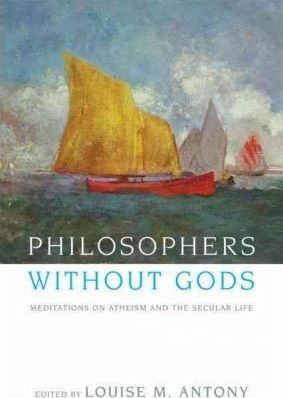
3:16: Naturalism is likely to be committed to atheism – or at least a strong kind of agnosticism. New hostilities broke out some time ago between religion and philosophy when Dennett, Dawkins and others made robust assaults on religion. Fairly or not, some thought their approach was faulty. They seemed intellectually arrogant and theologically ignorant. You argue for atheism in line with your naturalist approach to everything. You argue for atheism in terms of faith. Does this differ from Dennett, Dawkins et al? What is the faith of an atheist?
LA: Insofar as naturalism is opposed to the “supernatural”, yes, it is committed to atheism. But try defining either of those terms without presupposing the other. So I don’t know how informative it is. Also, the kind of naturalism I’m committed is a kind of continuity thesis – Quinean confirmational holism – everything is potentially evidentially relevant to everything else. And Quine himself was willing to say that, if the best way of theorizing the world involved a deity or immaterial entities, that he would have no trouble embracing them. I agree with that. I just don’t think (and I’m pretty close to certain about this) that the best theory of the world is not going to involve an immaterial deity.
I dislike the way Dawkins, Hitchens, and Harris talk about atheism because they suggest that you have to be an idiot to be religious, and that’s ridiculous. Dennett is more nuanced, but I think he also thinks of religion as essentially irrational. Some of the smartest people I know are theists. They also seem to be clueless about the important role that religion plays in the moral lives of many people, and insulting to the moral seriousness and political effectiveness of people who are motivated by religion. I’ve been an activist all of my adult life, and in every war or form of injustice that I’ve opposed, there have always always been religious people – people who conceptualize and express their moral commitments in theological terms – at the forefront. In fact, I’m usually shamed by the degree of commitment of religious people, who I find are usually willing to risk or sacrifice much more than I am for the sake of the causes we all commit to. In my book, what matters is your moral commitment; I don’t care what your metaphysics is. As a philosopher I care, but most people (I’ve discovered) are not that interested in arguing about the existence of God. It’s not my brief to convince people not to believe in God. My job, as I conceive it, is rather to normalize atheism – to convince religious people that it’s perfectly possible to be an atheist and a good person.
I have in-house disagreements with the Four Horseman: they are all pretty strict adaptationists, and think that natural selection explains just about everything in human behavior. I’ve been convinced by Stephen Jay Gould and Richard Lewontin that this is a mistake. Harris is a utilitarian, and thinks that utilitarianism is the only scientifically respectable theory of morality. I think that position is confused. I don’t have handy a naturalistic meta-ethics, but as far as I’ve been able to think through the issues, I see no reason at all why morality couldn’t be one of our innate capacities, just like mathematics and language. (John Mikhail has a brilliant theory about how this might work.) It’s well-known among developmental psychologists that sympathy and a sense of fairness are early-emerging qualities in children. The adaptationist “explanations” (they are really just speculations) might be right and might be wrong, but they have nothing to say about the content of our moral motivations. Natural selection can’t select between the parents who take care of their children because they want to perpetuate their genotype (an odd motivation, I must say) and those who take care of them because they love their children. So even if our moral attitudes are adaptations, they doesn’t make them not moral.
I hope it’s not true that I have ever (as you put it) argued for atheism “in terms of faith.” I became an atheist because I became convinced that there were no good reasons tobelieve in God, and one extremely strong reason notto believe in God, namely, the problem of evil. So it’s a matter of reason and evidence, in my case, or at least that’s how I regard it. In the article you may have in mind, “The ‘Faith’ of an Atheist”, I allow that one has some choice, consistent with rationality and sensitivity to evidence, about how to regard one’s fellow human beings. If one can keep the humanity of another person in mind, and recognize the enormous challenges we all face, what with our limited abilities, complicated emotions, and liability to pain, then things will go better. This is a perspective more than a set of beliefs – and it’s one you are rationally permitted to adopt, I contend. Maybe this is akin to William James’s “will to believe”, except that, as I said, it’s not so much a belief as a perspective.
3:16: You recently debated whether atheists can have rational ethics without a God with philosopher of religion William Lane Craig. Some of his arguments sounded like the kind of arguments an atheist like Alex Rosenberg might put – that atheists who want a realist conception of ethics are not facing up to the change naturalism brings. Craig Lane insists without supernatural entities we are just instinct driven animals – mammal psychology and not philosophy should be where we look to explain ourselves. How do you respond to this – and why does it matter whether I believe in God or not on your view?
LA: Well, I think I answered parts of this question above. Let me just add these details. First of all, Craig relies overly much on “guilt-by-association” arguments: Rosenberg is an atheist and a moral nihilist; you are an atheist; therefore you must be a moral nihilist. This is a patently bad argument. Secondly, if Craig and other theists believe that “instinct” (by which I suppose is meant, some kind of automatic, non-rational mechanism) can explain human behavior – or even primate or canine behavior, then they just need to learn more about psychology. Thirdly – and this should be obvious – it hardly follows from the fact that we and other animals are all animals, that we aren’t different from each other, and different in ways that might be (and are) morally significant. It’s morally significant if a creature can feel pain, and it’s morally significant if a creature can cognize that other creatures can feel pain. Human beings have a cognitive capacity to recognize not only that other creatures can feel pain, but that this is a morally significant fact. That’s why we have moral obligations – to other human beings, but also to some creatures who don’t have the moral capacity that we do. This is all a matter of observable fact; there’s nothing here that’s the least bit incompatible with naturalism.
3:16: And finally, are there five or so books you can recommend that will take us further into your philosophical world?
LA: Hmm.
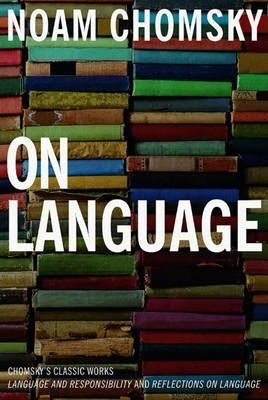
There’s Noam Chomsky’s Reflections on Language, which utterly blew my mind.
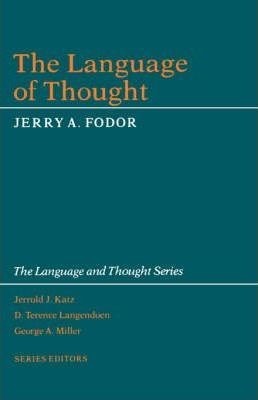
The work of Jerry Fodor – The Language of Thought is probably his most famous book,

but so much of his writing had an influence on me that I guess I’d recommend one of the collections of his essays, like Representations.
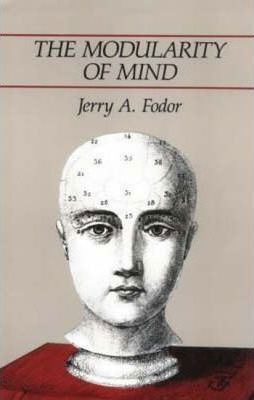
But Modularity of Mind is also a masterpiece.
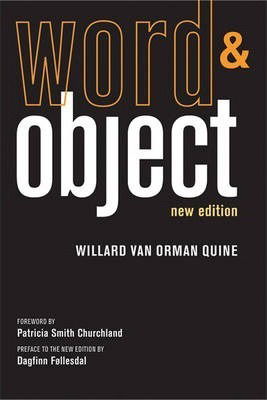
I have to mention W.v.O. Quine – though his most famous monograph, Word and Object doesn’t contain some of his most influential work, and contains lots of stuff I don’t accept.

Again, one of the collections of his essays, like From a Logical Point of View
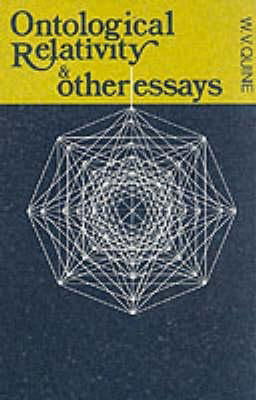
or Ontological Relativity and Other Essays.

Hilary Putnam, who was my main thesis advisor, was a huge influence, and wrote (at the time I was his student) in mostly essay form. The most important ones for me were collected in Vol. 2 of his collected essays Mind, Language and Reality.

On the political side, Chomsky was again an enormous influence, but also John Rawls’s A Theory of Justice.

Richard Barnet’s Intervention and Revolution was a political wake-up call for me.
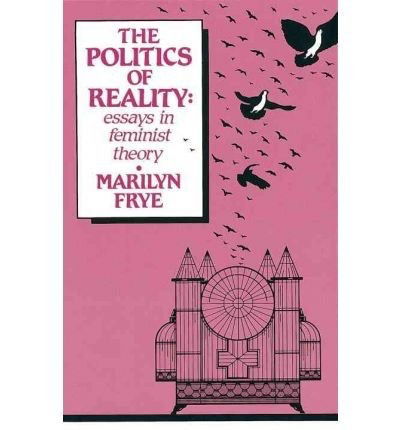
Marilyn Frye’s excellent collection of essays, The Politics of Reality, presents what I think of as the foundations of feminist philosophical thought.

ABOUT THE INTERVIEWER
Richard Marshall is biding his time.
Buy his second book here or his first book here to keep him biding!
End Times Series: the index of interviewees
End Time series: the themes